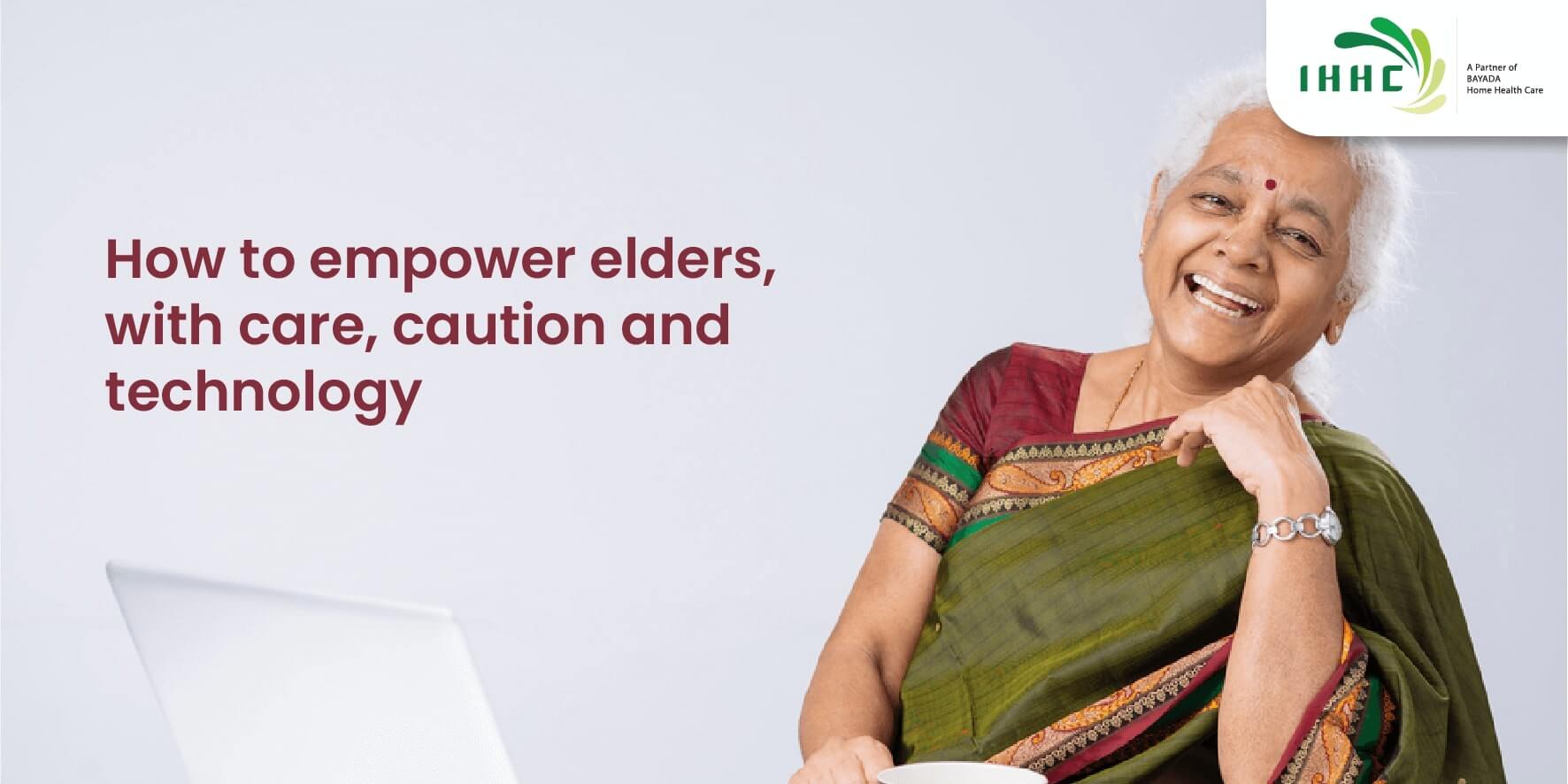Is there a need for home healthcare in India?
Are you looking after your elderly parents or a bedridden elderly family member? Or, do you look after an adult with some sort of degenerative disease? Perhaps, one of your children has an congenital problem or a long term health issue? In other words, are you a caregiver? One of the many people who have no option other than having to cope with, and look after, family members who can’t look after themselves. In which case, you will probably answer all the questions given below in the affirmative.
Do you have to:
- Monitor symptoms
- Administer complex medication regimens
- Assist with personal care
- Provide emotional support
- Manage difficult behaviour - such as wandering out of the house, aggression and hallucinations
- Manage finances
- Coordinate care
- Deal with medical and clinical personnel
- Have no personal time
If you do all this, and more, then you may be suffering from:
- A great deal of stress.
- Clinically significant depression
- Physical health problems
- Sadness or feelings of hopelessness
- Loss of energy
- Resentment toward the person in your care, specially older adults
- The feeling that people ask more of you than they should
- Memory problems
- Feelings of isolation
- Outbursts of out-of-control behaviour
Look after yourself before looking after others
This is the most important principal that all caregivers should follow. Because, the person in your care needs to have a healthy, happy and balanced person looking after him or her. Only when we first help ourselves can we really help others. Taking care of yourself is the most important—and one of the most ignored—things we can do as caregivers. When your own needs are taken care of, the person you care for will also benefit. It is vital that you take into consideration, and act upon, the following issues. Here are some effective tools for self-care that you can follow, starting today.
Levels of stress
There is a great deal of stress involved in caring for somebody. The level of stress is a result of many factors, including the following:
- If the caregiving is not voluntary, and you feel you had no choice in taking on these responsibilities, you will experience strain, distress, and resentment
- How you coped with stress in the past is a good indicator of how you will cope with it in the present. Identify your coping abilities so that you can work on strengthening them
- Some caregiving situations are more stressful than others. For instance, caring for someone with Alzheimer’s is often more stressful than caring for someone with a physical problem
- The possibility of getting some external support
Managing stress
- Recognize warning signs early. These could include irritability, sleep problems, and forgetfulness. Don’t wait until you feel overwhelmed
- Identify the sources of stress – which might include having too much to do, family disagreements, feelings of inadequacy, or the inability to say no
- Taking action to reduce stress will give you a sense of control. Stress reducers can be as simple as going for a walk or other forms of exercise such as yoga, gardening, meditation, just enjoying coffee with a friend.
Reducing stress
Identify stress reducers that work for you. And setting goals is an important tool that you can use to take care of yourself. Here are some goals you might set:
- Work towards taking a break from caregiving
- Get help with ordinary caregiving tasks such as bathing and preparing meals
- Participate in activities that will make you feel more healthy and encourage a positive mindset
Work towards achieving these goals by:
- Getting a physical check-up
- Taking a half-hour break once a week, to get away from it all
- Walking at least three times a week, for 10 minutes
Asking for help and accepting - it without feeling guilty
Many caregivers are reluctant to ask for help. Perhaps you don’t wish to “burden” others or admit that you can't handle everything yourself? But, to be fair to yourself, and to the care receiver, make a list of the ways others could help you.
- A friend could take the care receiver for a 15-minute walk, a couple of times a week
- Your neighbour could pick up a few things for you at the grocery store.
- A relative could come and sit with the person you are caring for, while you go out for a quick break
When you break down the jobs into very simple tasks, it is easier for people to help. And people do want to help. It is up to you to ask them.
In conclusion
Always keep in mind, that it’s not selfish to focus on your own needs when you are a caregiver. You are responsible for your own health, happiness and peace of mind. Focus on the following:
- Learn stress-reduction techniques, e.g. meditation, prayers, yoga, Tai Chi, sewing, painting, reading, listening to music
- Look after your own healthcare needs
- Get proper rest and nutrition
- Exercise regularly, even if only for 10 minutes a day
- Take time off without feeling guilty.
- Indulge in pleasant activities, such as watching a film, taking a warm bath
- Accept support from others
- Identify and acknowledge your feelings – and deal with them
- Change negative ways you view situations and nurture a positive frame of mind
Just remember, a happy, healthy care giver makes for a happier care receiver!




